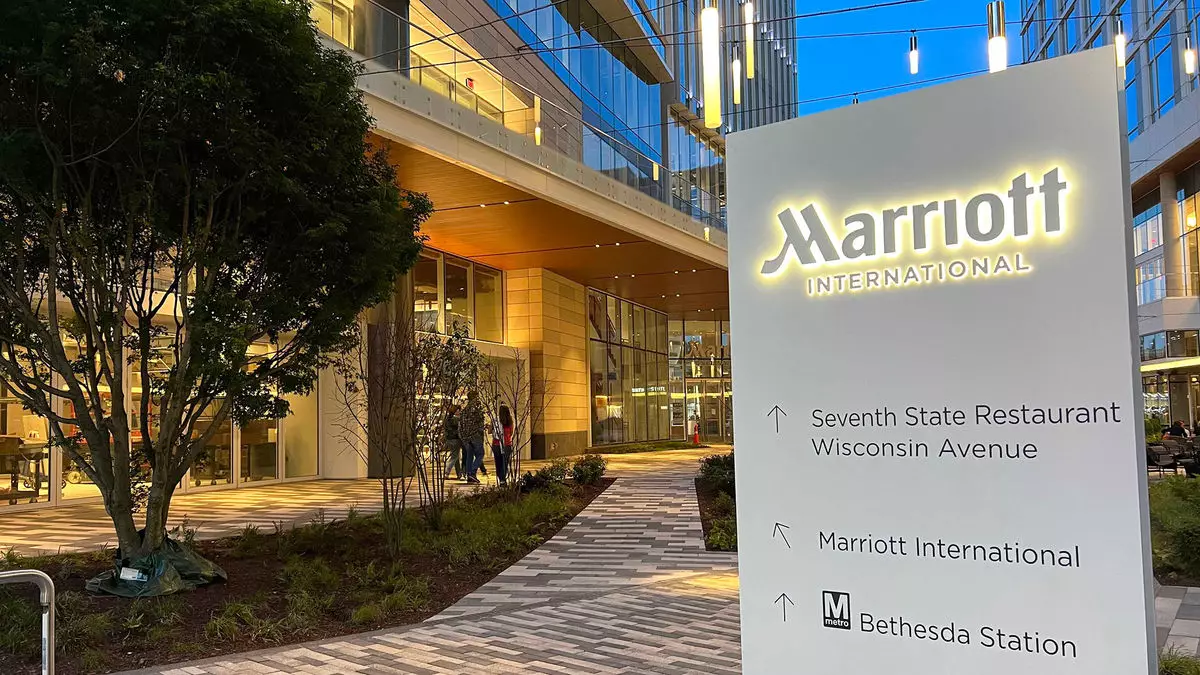In an era marked by political and economic frictions, hospitality giants like Marriott International find themselves navigating complex waters. During a recent Q4 earnings call, CFO Leeny Oberg addressed concerns regarding a potential decline in inbound travel from Canada and Mexico, largely attributed to trade tensions with the previous Trump administration. While specific apprehensions about tariffs have emerged, Oberg emphasized that the proportion of Canadian and Mexican visitors constitutes a mere 1% to 2% of Marriott’s U.S. room nights. This statistic, underscored by its relatively small impact on overall revenues, invites a broader inquiry into how external economic factors influence consumer behavior and, ultimately, company performance.
While the U.S. Travel Association estimates that a modest 10% decline in Canadian travel could translate to 2 million fewer visits and $2.1 billion lost in revenue, Oberg downplayed these figures as “too soon to say we’re seeing anything of note.” This assertion speaks to a strategic optimism that contrasts sharply with the prevailing narrative of doom and gloom often broadcasted through media channels. Evidently, the ability to remain composed in the face of economic turbulence embodies innate corporate resilience, fostering an environment where long-term planning can flourish, even against a backdrop of uncertainty.
Despite external pressures, Marriott reported a commendable fourth-quarter performance, marking a global revenue per available room (RevPAR) increase of 5%. This was driven by a rise in average daily rates (ADR) and a slight uptick in occupancy. In the U.S. and Canadian markets, RevPAR performance exceeded 4%, a signal of robust demand, especially during the politically charged climate surrounding the U.S. presidential election. These figures are indicative of an adaptable business model that can weather domestic economic swings, revealing the underlying strength of Marriott’s operational strategies.
It is instructive to examine how Marriott’s leadership has positioned the firm to capitalize on prevailing consumer sentiments. CEO Anthony Capuano pointed to the demand resilience surrounding the election period, hinting at an evolving consumer behavior marked by a willingness to travel despite political headwinds. This data reinforces the notion that, while geopolitics undoubtedly impacts travel patterns, consumer habits ultimately remain the linchpin of hotel profitability.
As part of its forward-looking strategy, Marriott is embarking on what Capuano has termed a “multi-year digital transformation.” The company’s commitment to technological advancements signifies a pivot towards a more integrated and efficient service model. Oberg indicated that Marriott plans to execute a higher-than-average historical investment in technology, focusing significantly on revamping its property management, reservations, and loyalty systems.
A digital upgrade of this magnitude could provide Marriott with a competitive edge in the bustling hospitality sector. The ambitious improvements aim not only to streamline operations but also enhance the customer experience across various services offered beyond room bookings—such as food and beverage options, spa treatments, and recreational activities. Capuano’s perspective reflects an awareness that modern consumers value convenience and accessibility, and a seamless booking experience could lead to additional revenue streams for hotel owners.
In addition to digital advancements, Marriott’s capital allocation also reflects a keen focus on its owned and leased properties. Recent renovations at its Elegant Hotels resorts in Barbados exemplify this approach. Acquired in 2020, these seven hotels, which include all-inclusive options, are set for substantial improvements, primarily expected to be completed by 2025. This long-term investment strategy not only augments the value of the property portfolio but also enhances customer appeal—an essential component in a competitive marketplace.
Oberg acknowledged strong performance metrics since the acquisition, while mentioning plans for a possible sale of these resorts post-renovation, subject to long-term contracts. This foresight indicates Marriott’s tactical awareness of market dynamics and investor interest in the all-inclusive segment, boding well for future profitability.
Marriott International’s recent efforts underscore a dynamic interplay between responding to present economic challenges and planning for future investments. The firm’s focus on digital transformation, combined with a strategic augmentation of its property portfolio, signals a proactive approach tailored for resilience in the face of unpredictable external factors. As travel behaviors continue to evolve, so too will Marriott’s strategies, positioning it for sustainable growth in a competitive hospitality landscape.

